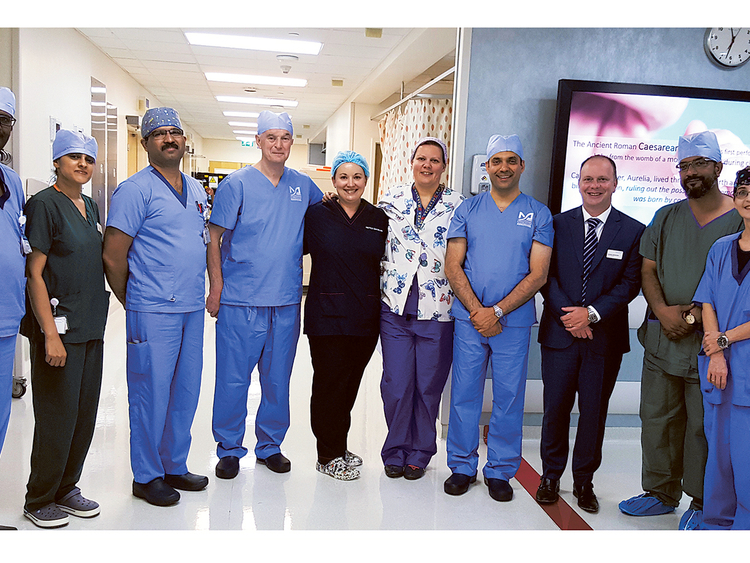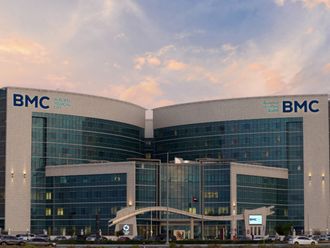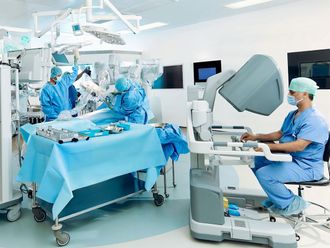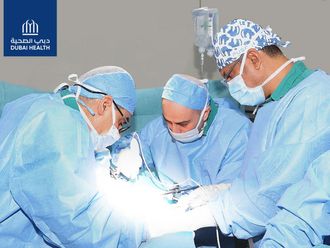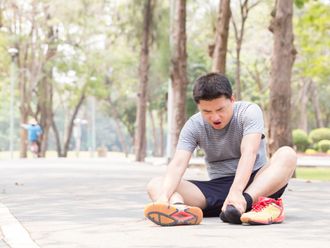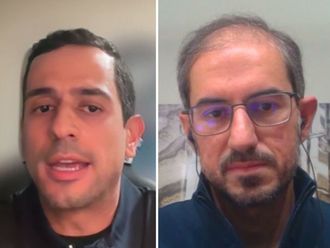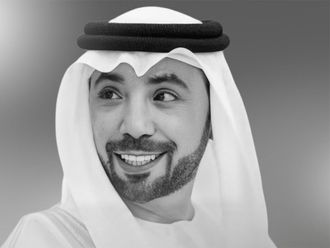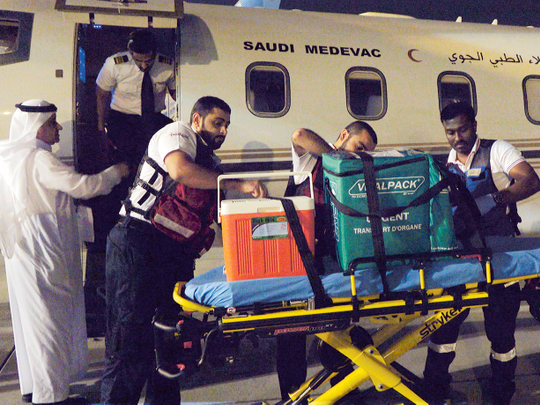
Dubai: Dubai reached a medical milestone this month with the successful transplant of a kidney of a deceased donor to a 29-year-old woman, Dubai Health Care City Authority (DHCA) announced on Wednesday.
This is the first kidney transplant in Dubai and also the first cadaver transplant in the emirate.
The surgery was carried out on June 8 under the aegis of Mohammad Bin Rashid University of Medicine and Health Sciences (MBRU) in collaboration with the Mediclinic City Hospital at Dubai Health Care City (DHCC).
Dr David Hickey, a transplant surgeon and former director of National Kidney and Pancreas Transplant Programme in Ireland, conducted the surgery along with Dr Farhad Janahi, Assistant Professor at MBRU and Consultant Urologist at the Mediclinic Hospital.
The recipient is an Emirati mother of two, a severe diabetic who was on dialysis.
She received the kidney from a deceased Saudi donor arranged through the Saudi Centre for Organ Transplantation (SCOT) headed by Dr Faisal Shaheen, director general of the centre.
Logistics
The kidney was flown from Riyadh to Dubai by a medical evacuation team provided by SCOT.
The Dubai Health Care Regulatory Authority said several government authorities played a vital role in ensuring swift and safe transportation of the kidney to the hospital and these included Dubai Airports, Dubai Ambulance Corporation Services (DACS), Dubai Customs and the General Directorate of Residency and Foreign Affairs (GDRFA).
The surgery marked the launch of the MBRU Organ Translplant Programme. Dr Raja Easa Al Gurg. Vice-Chairperson and Group Chief Executive Officer of the Dubai Health Care City Authority (DHCA) and Dr Amer Ahmad Sharif, CEO of the education sector at the DHCA, both congratulated the team of doctors at the success.
Christine Schumacher, hospital director of Medclinic City Hospital, said: “I would like to acknowledge the trust that the MBRU have placed in us to carry our this important procedure.”
City nephrologists welcome new era
Dubai’s health care community on Wednesday welcomed the first-ever deceased donor kidney transplant that has made medical history at the Dubai Health Care City (DHCC) as it not only provides new hope to numerous transplant patients on waiting lists but also puts the city on the international medical tourism map for transplant surgeries.
Until now, only live donors were permitted and it was difficult to find enough organs for transplanting. The surgery has raised hopes of a huge number of patients on dialysis due to kidney disease, nephrologists said.
Dr Sandeep Varma, specialist nephrologist at the Prime Hospital, told Gulf News: “In the UAE, approximately 50 per cent suffers from obesity and 30 per cent from diabetes. These two are major factors for exacerbation of kidney disease here. So far, those on dialysis had little hope of a transplant from a live donor. Most expatriates travel back to their countries and doctors here were only doing post-transplant follow-ups. With new drugs, the age for transplants is also pushed up to 65 years. Therefore, with Dubai initiating deceased donor transplant, it will encourage other private hospitals to contemplate setting up of transplant units.”
Deceased donor transplantation
A senior transplant surgeon from a UAE hospital who declined to be named said the availability of organs from deceased donors would slow down the illicit trade in organ trafficking.
Prior to 2010, only immediate relatives of the recipients could donate organs. Lack of organs is a major bottleneck to transplantation, not everyone is lucky enough to have a matching donor in the family. Deceased donor transplantation is the only hope for such patients.
The next step in the organ donor programme will be to train dedicated physicians, nurses and transplant team, as well as a public information campaign to raise awareness about donations,” he said.
The availability of organs will have a definite impact on the quality of life of kidney patients. Dr Varma said: “A kidney disease patient has to come in for dialysis for at least two to three days in the week. If a kidney is available for transplant, it will impact his quality of life. A normal graft has a survival rate of 11 to 15 years but grafts are known to survive up to 40 years if all other factors work well. Nearly 70 per cent of patients retain their transplants for 15 years, but with modern immunosuppressant drugs, there is a chance of a person getting a long lease of life and this is dramatic. So far, immediate relatives were unwilling to donate but with the possibility of cadaver transplant, there is a greater hope for dialysis patients on waiting lists.”
'Patient happy'
Following the success of the surgery, M.A., the kidney recipient expressed her happiness.
“The surgery has given me a new lease of life, not only because I can be healthy again, but also because it has given me the opportunity to bring a new life into the world as I would love to have my third child after I recover. I want to urge each and every member of my society to become donors as they will be gifting life not just to an individual but to the whole family.”
M.A. added that she had the confidence that her country had the expertise in organ transplantation and was relieved to undergo surgery in her home country surrounded by her loved ones.


